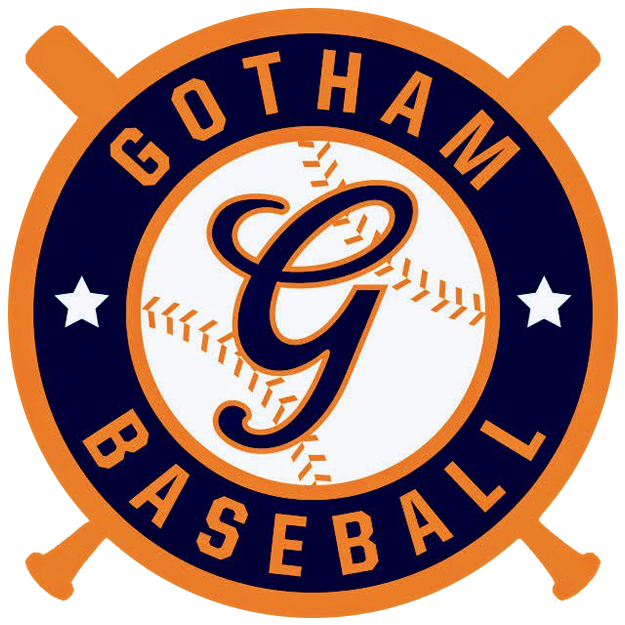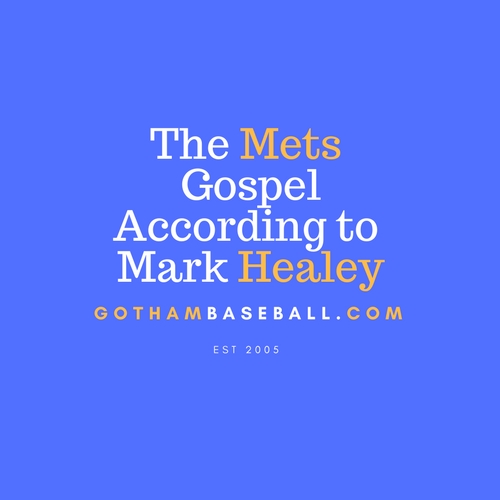Jill Krauza used the stopwatch on her iPhone to count down from 14, while on the other end of a phone call, her son, Michael Krauza, pretended to deliver a pitch.
Michael was about to make his affiliated baseball debut and had never pitched using a pitch clock before. His parents were helping him prepare.
“It’s almost like an out-of-body experience, some of the stuff,” Bill Krauza, Michael’s father, said. “I was reminded of when I was a naval aviator, and I remember that after all the stuff I went through, the day I got my wings was almost like, ‘I can’t believe this happened.’ And I think that’s how I felt that day, because our son’s gonna get a shot pitching in professional baseball.”
Michael spent parts of the past two seasons pitching for the Cleburne Railroaders, an independent baseball league team in the American Association of Professional Baseball. In June his contract was just purchased by the New York Mets, and he was sent to play for the High-A Brooklyn Cyclones.
How did he get to this point? Well, his story is about as improbable as it gets.
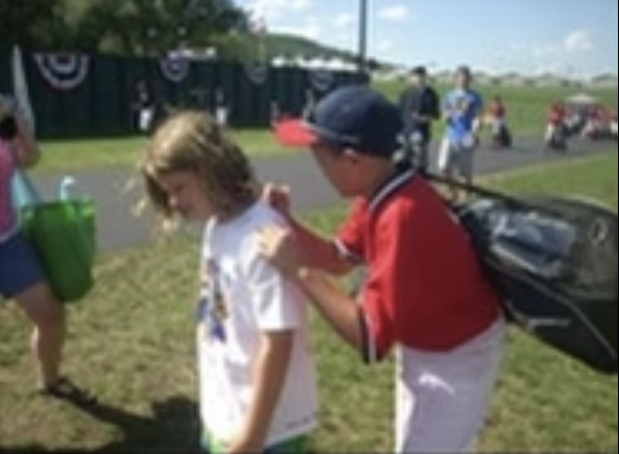
Hometown Baseball
A Pennsylvania native, Michael Krauza attended Franklin Regional Senior High School in Murrysville, Pennsylvania, where he lettered in golf, not baseball. He even said he wanted to play in college — until he lost to Arnold Palmer’s granddaughter by 18 strokes in an 18-hole tournament.
As for baseball, Michael wasn’t even a pitcher at that time, he was an infielder, and said he was cut outright in both eighth and ninth grade. In 10th and 11th grade he played junior varsity, which isn’t usually a good sign, as he put it. In his 12th grade season, he was on varsity but said he didn’t really play a meaningful varsity inning.
“I remember I played one game, I think, my senior year in high school,” Michael said. “They let me play senior day, and they gave me one at bat, and it was considered to be too serious of a game, so they took me out after my one at-bat.”
Bobby Sadler, the head baseball coach at Franklin Regional, said Michael was more so a casualty of numbers, as they were just trying to play the best nine guys and had a very talented roster.
Sadler mentioned that at the end of the season, Michael wrote him an email thanking him for everything he did. He said Michael also said something to the effect of, if he was given an opportunity he thinks he would have been able to produce, but he understands.
Sadler said it was something he really respected and that he’ll never forget. He said Michael was a great teammate and never lacked confidence, and is proud of him for working towards and getting to where he is today.
“He didn’t have the best high school career,” Sadler said. “If he would tell you, that might be putting it mildly. He wanted to do more. He wanted to contribute more. He felt that he could help the team more, but he never let that be a negative thing in the dugout. … it’s inspirational, and I just couldn’t be happier for him.”
As for Michael, he said he wouldn’t trade his high school experience for anything.
“All that stuff kind of gave me the shot to gain a lot of perspective, and what has become gratitude today,” Michael said. “I would not be nearly as grateful for the fact that I get to get up in the middle of a baseball field every day if that stuff didn’t happen in my past.”
Ken Halleck, who coached Michael at points from youth baseball all throughout Senior American Legion, touted his competitiveness as one of the likely reasons he is where he is today.
Halleck said that back when he coached Michael, he was the team’s best shortstop, as he noted is likely common for players who reach the level Michael has. He was a good pitcher but not great, and it was his competitiveness that won him battles on the mound.
“When the game got tight, if you needed a save if you needed somebody to pitch in a big spot when the chips were down … one person would not get rattled by any situation, and that was Michael,” Halleck said.
Gus Bondi, who also coached Michael for many years, including through the American Legion seasons, had similar things to say.
“I remember he was a very competitive kid,” Bondi said. “He was always happy to be in the lineup and it didn’t matter if it was in left field, shortstop, first base, catcher, pitcher, didn’t matter. He was just happy to play. Do whatever you asked him to do. … Always was competitive. Fiery.”
College Career
Michael went on to play club baseball at Xavier University for two seasons, and it was there he took the first steps to commit to pitching. He’d pitch a little here and there, but never consistently. What Michael really loved doing, he said, was fielding — and he was good at it too.
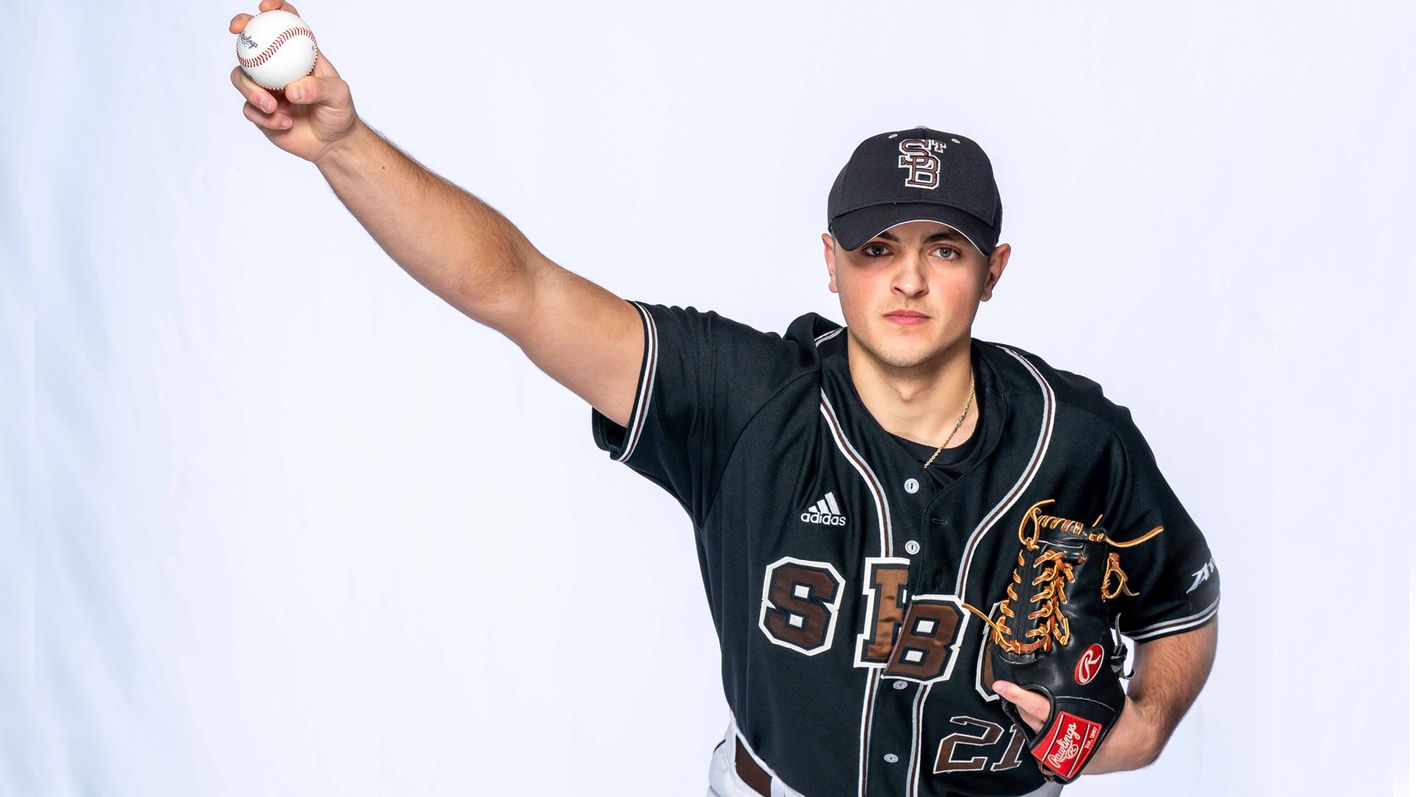
“I was concerned because he was a really good shortstop, and he has tremendous baseball IQ,” Jill Krauza said. “… So I had, personally, misgivings about him switching to a pitcher because, although I thought he was a really good pitcher, I just had seen mostly his shortstop, and he was really good at that.”
Michael started bulking up and said he put on 40 pounds and gained eight miles per hour on his fastball in three months. He took a video of himself throwing off a wooden mound and sent it out to a handful of schools, mostly Division II and a few Division I.
St. Bonaventure, a Division I school in New York state, gave him a roster spot.
B.J. Salerno, the Associate Baseball Head Coach, worked mainly with the pitchers when Michael was with the Bonnies. He said Michael was a very intelligent and hard-working player, but struggled a bit with them because of how he tried to pitch.
“He had a really good slider,” Salerno said. “But for whatever reason, he always wanted to go more fastball heavy, and his control wasn’t quite there. But he had a really good slider.”
Michael echoed him, even saying himself that he wasn’t particularly good when he was there.
“I was a young pitcher,” Michael said. “I was new to the whole pitching thing and in love with a fastball that was wild and really not that fast anyway.”
Then, COVID happened, and Michael transferred to play at Mercyhurst University
“The best choice I think I ever made in my baseball career — I made a lot of bad choices — but the best one ever made was transferring to go play for Joe Spano over in Erie, Pennsylvania, at Mercyhurst.”
It was at Mercyhurst when Michael truly unlocked the slider in his arsenal. Spano, the head baseball coach, said when he first saw the pitch, he knew it had to be used a lot more than it was.
“Switching up his mentality was a big factor in his development, and knowing how to use that pitch better,” Spano said. “… Somebody with exceptional stuff was pitching very average because he wasn’t using that exceptional stuff.”
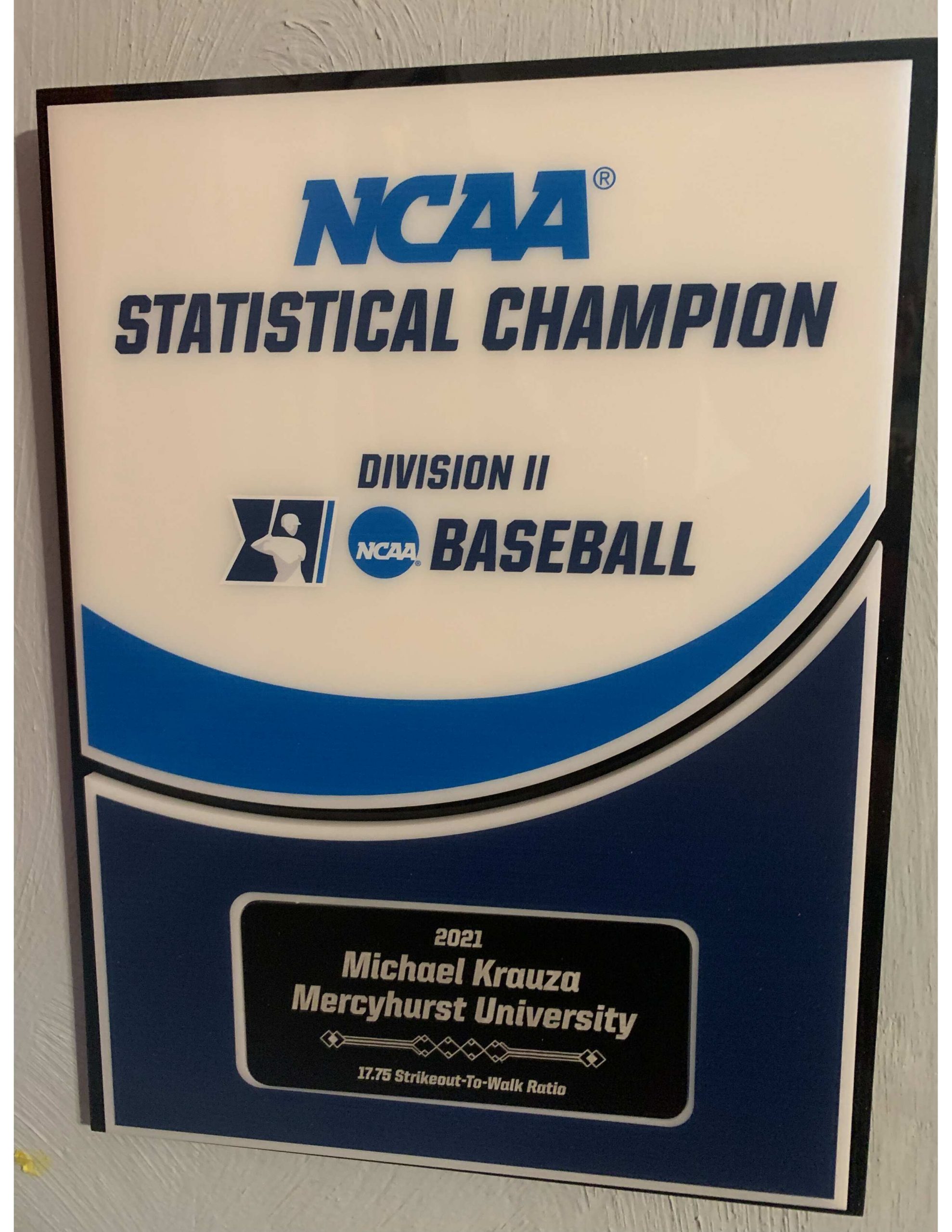
Spano said it is one of the best sliders he has ever seen, if not the best. He said the metrics on the pitch, like the spin rate, are very strong, up there with some of the best Major League sliders.
He put everything together as a Mercyhurst Laker, putting up a 2.67 ERA in 54 innings over 40 games with 71 strikeouts and just four walks — one of which was intentional.
“We were very thrilled to see him get an opportunity to play a lot,” Bill Krauza said. “He ended up being a Division II All-American there and had some just extraordinary numbers. He was also an academic All-American Division II at Mercyhurst. So I was really, and I think Jill was too, extremely proud of him to get that kind of an achievement.”
His strikeout-to-walk ratio of 17.75 was the best in all of Division II baseball that season, even earning him an award for being an NCAA Statistical Champion.
“He’s literally the first person there and the last person to leave every single day,” Spano said. “You can’t beat him to practice, you can’t stay longer than him. That, combined with his ability, those are the kinds of kids that can make it because of how competitive it is. Not only does he have the talent, but he has the work ethic and drive.”
The relationship between the two has continued throughout Michael’s journey through professional baseball. The two talk all the time, and Michael even spent all of the most recent offseason training with him
“I don’t think the coaches at St. Bonaventure had a whole heck of a lot of a reason to believe in me, and I think I was confused to see so much belief in him in me so quickly,” Michael said. “… I think he saw something in me that I definitely didn’t see in myself. I don’t know exactly what to call him, a friend or a father-like figure, but I’d go to hell and back for him.”
Michael had three stops in his collegiate career, starting out playing club baseball at Xavier before going to play NCAA baseball at St. Bonaventure and Mercyhurst. But when people ask where he went to school, it’s all Mercyhurst.
“I’m a Laker, I went to Mercyhurst,” Michael said. “That’s my school.”
Indy Ball
After Mercyhurst, Michael ended up pitching for the Houston Apollos to start 2021, the travel team in the American Association. As a traveling team, the Apollos never actually played a home game, they just went from stadium to stadium playing as the away team.
He made three appearances for the team, and in the first and third, he combined to give up five earned runs in just one total inning pitched.
After his third appearance, Michael chose to hang up the cleats. At that point, he had decided to move on from the Apollos, and, as he put it, “move on with my life.”
The Cleburne Railroaders had other plans. In Michael’s second outing with the Apollos, he went 2.1 innings and didn’t give up a single hit, much less a run. That game, by chance, was against the Railroaders.
Michael said the Railroaders called him as soon as he got his release from the Apollos and asked him to fill in, as they just had four players get signed by affiliated teams and two players get injured.
“You know how it is when you first start with those teams, you need to pitch well really early or they’ll just get rid of you,” Michael said. “And I pitched well, I was lucky enough to pitch well early on.”
Pitch well he did, giving up just two earned runs in nine innings over his first five appearances. On the season, he pitched to a 3.17 ERA in 45.1 innings over 37 games, striking out 49. He returned to the Railroaders in 2022 and pitched even better, putting up a 2.00 ERA in 19 innings over 15 games.
“To get the chance to go out there and wear Cleburne and on my chest and play for that city that cared so much about their franchise, it was amazing,” Michael said. “And the front office was amazing. It was a blessing, truly, to play for them.”
While pitching for the Railroaders, Michael was living with a host family — Jim and Rhonda Swan.
The Swans have been a host family for Railroaders players since the team began play in 2017, and Jim’s great uncle was Tris Speaker, a member of the Major League Baseball Hall of Fame. Speaker’s first professional team was the Cleburne Railroaders, playing for them in 1906 before the team was moved to Houston.
The Swans take pride in being deeply involved with the team, and as Jim jokingly put it, he almost feels like an ambassador for the team even though he’s just a fan.
“We’ve got just incredible people that take these players into their homes,” John Junker, part owner and president of the Railroaders, said. “You know, and I’m sure you really got this from Jim and Rhonda, they become part of their family.”
The Swans do indeed view Michael as family, and he views them the same way.
“I had a host family that became just family-family,” Michel said. “They’ve been incredibly generous in true Texas spirit and let me continue to live off the land here in Texas.”
That’s why, when Michael’s contract was purchased by the Mets, it made it that much more heartbreaking that the Swans weren’t home to see him off.
Jim and Rhonda Swan had left at 10 a.m. on vacation, driving from Texas to Hilton Head, South Carolina. At about 4:00 p.m., Jim said, they received a call from Michael.
“I’ve got good news and bad news,” is what Jim said Michael said over the speakerphone.
“You’re leaving, aren’t you,” Jim said Rhonda replied.
Then the tears started flowing.
“He’s crying, my wife’s crying,” Jim said. “It was like separation anxiety, because had we known we would have stayed. We didn’t get to say goodbye.”
Jim said he spoke to Watkins, Cleburne’s manager, when they got back from vacation and asked when he found out Michael would be going to New York. Watkins told him he got a call around 9 o’clock.
They left at 10. If they received a heads up, Jim said, they would have been able to stay and say goodbye.
“At that moment, it was devastating just because we weren’t here,” Rhonda said. “You know, you have those times when you’re thrilled but really upset at the same time, And I guess that’s that’s what that was.”
New York Mets
Watkins received a call one morning from a Mets scout, asking him what he thought about Michael and ultimately telling him they were going to purchase his contract.
They waited to break the news until they got to the ballpark, and called a team meeting.
“Like we talked about before that road trip, I told you, you guys obviously see it, there’s a lot of roster turnover,” Watkins announced to the team. “Me, Jose [Amado, hitting coach], Arthur [Rhodes, pitching coach], we’re discussing trades, all this stuff. I got a phone call today for a move, and like I said, it doesn’t matter how good of a player you are, if there’s a good deal on the table I gotta take it, so. Today I got a phone call, and I just want to say, congratulations to Michael Krauza, the New York Mets purchased your contract today.”
Someone in the clubhouse was recording, and now that moment is saved forever.
“It was just so exciting,” Jill Krauza said. “I think I watched that video, I don’t know, maybe 60, 70 times. It’s just what Michael has been working towards for so long. And to see that news given to Michael and get his raw reaction to it. As a parent, it was just wonderful.”
Michael, at that point, had already heard one particular MLB organization was interested in him earlier in the season. However, once that team went out and signed a bunch of indy ball guys, and he wasn’t one of them, he thought he missed his chance.
Then, the morning he was signed, he missed a call from Mercyhurst’s Joe Spano with a message that he needed to call him back as soon as possible. After a little phone tag, Michael said, they connected, and Spano told him he received a call from the Mets.
After that, it was on his mind, but Michael said he still wasn’t believing it. There was a team meeting, but Watkins buried the lede, starting out talking about other business. He waited until the very end, and then broke the news.
“I’ll never forget that moment,” Michael said. “So many guys in this organization are lucky enough to hear their name called on draft night, and I’m sure that’s a really special day for them, and that day will be a lot like that for me.”
Michael gives a lot of credit to Brantley Freeman for helping him get signed by the Mets. Freeman, the co-owner of Atlet Sports, also played a role in getting him signed by the Railroaders. He had trained him previously and even let Michael live with him while training.
Freeman did a lot of work to get his information in front of scouts, Michael said.
“He represents everything that I tried to do as a coach in terms of showing people a number of things that you can learn from him,” Freeman said. “Obviously work ethic, he did not have the advantage when it comes to getting affiliate ball. He made that happen for himself. But he did it by finally understanding how to address the low-hanging fruit for what he is as a player. Instead of trying to be a 95 guy, which he wasn’t, he figured out the other advantages that he had. And I mean, incredible advantage that he has.”
The slider — which Freeman said on Statcast reads as a top-25 MLB level slider.
Michael was shipped to the High-A Brooklyn Cyclones to start, making his affiliated baseball debut in an away game vs. the Hudson Valley Renegades. He threw a perfect 1-2-3 inning.
He wasn’t ever really intended to start off with the Cyclones, but Brooklyn had some COVID issues and needed arms, Michael said. Five days after his debut, the Mets reassigned him to Low-A St. Lucie.
“They get to wear the Mets blue and orange, [that] was really, really cool,” Michael said. I actually felt like I was a part of the New York Mets organization for the first time, so I enjoyed that.”
He spent about a month and a half with the St. Lucie Mets, including a semi-lengthy stint on the COVID list. Then, the Mets actually sent him to Citi Field.
Eduardo Escobar, the third baseman for the New York Mets, was injured at the time. He was rehabbing, and the Mets needed someone to throw to him.
“They were like, ‘hey, we need an arm, would you be willing to go up there?’ And I was like, ‘are you kidding? Yeah. Of course,’” Michael said.
He said the Mets set him and one other pitcher up in the big league clubhouse for the day, and they threw to Escobar and a few other draft guys.
“I’ll always be able to say no matter what I pitched on a big league mound now, which is super cool,” Michael said. “Just very blessed. That was a fun experience. I’m grateful to the Mets for asking me to go do that.”
Instead of returning to St. Lucie, the Mets promoted him to Double-A Binghamton, where he finished out the year.
When the season ended, in mid-September, Michael hopped on a plane and headed back to Texas. Jim Swan picked him up from the airport — and that was the first time he and Rhonda saw Michael in person since they left for Hilton Head in mid-June.
Michael’s back living in Cleburne, even though he doesn’t play for the Railroaders anymore. He’s working on the Swan’s ranch, whether it be mowing the lawn or mucking out some animal stalls.
“He was here at Easter with us,” Rhonda said. “He plans to be here on Thanksgiving. I mean, he has literally become a part of our family.”
Michael started his baseball career as a 2-year-old playing with a little plastic tee-ball set given to him by his grandparents. He was cut from his high school team. Twice. Played club baseball at Xavier. Division I baseball at St. Bonaventure. Division II baseball at Mercyhurst. Independent professional baseball for the Houston Apollos and Cleburne Railroaders.
Now, he is playing baseball for the New York Mets.
“All throughout my life, there’s all these moments where baseball has been over, and God has put someone in my life that has said just keep playing,” Michael said. “And I’m not sure why, I don’t know that I’ll ever know why. I don’t know that God cares a whole heck of a lot about baseball in and of itself, the game, but I’ll keep trying to figure out why that is I get to keep playing. Just be grateful while that’s occurring.”
